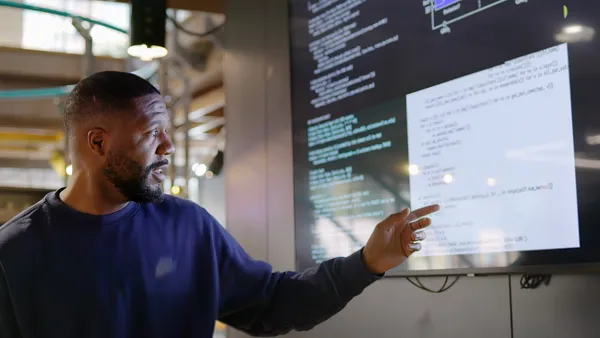Dive Brief:
-
Members of the C-suite don't accept the trustworthiness of data and analytics at face value, according to KPMG International's Guardians of Trust report of 2,200 international IT and business decision makers. Approximately 92% of executives worry about the impact different uses of analytics could have on their business's reputation.
-
However, deciding which individuals within an organization are solely responsible for ensuring the trustworthiness of data is difficult. Most respondents assume responsibility comes from the IT department, and about 19% of those surveyed said the CIO has the primary responsibility for making sure data should be trusted.
-
About 44% of organizations believe they are achieving data and analytics regulatory compliance while only 10% feel they are achieving the quality of data, tools and methodologies their organization needs.
Dive Insight:
Big Data is what drives a company forward, and though its mostly done through automation, there is still a reluctance to accept its role.
As the report notes, the reluctance can cause executives to ask, "what [type] of governance frameworks and controls are required when the risk-takers are machines, not humans?" If processes are done digitally, executives worry that there won't be someone to manage a case when something goes wrong.
All of these are legitimate concerns, but if the C-suite continues to undermine the quality of data that is collected, future business strategies will be stalled. To reduce the hesitation in trusting data, comparing previous analytic models to current ones can help validate the integrity of the data.
Of course questioning insight derived from automated services like AI is sometimes justified. AI is known to show biases from time to time, but it is unclear how to hold biased AI responsible for false data.
Ultimately, if data is not managed properly, companies stand to lose money and damage their reputation. And it is more likely the CEOs, not CIOs, will face the blame, according to the report. Redundancy measures need to be in place to make sure operations are working as expected.













